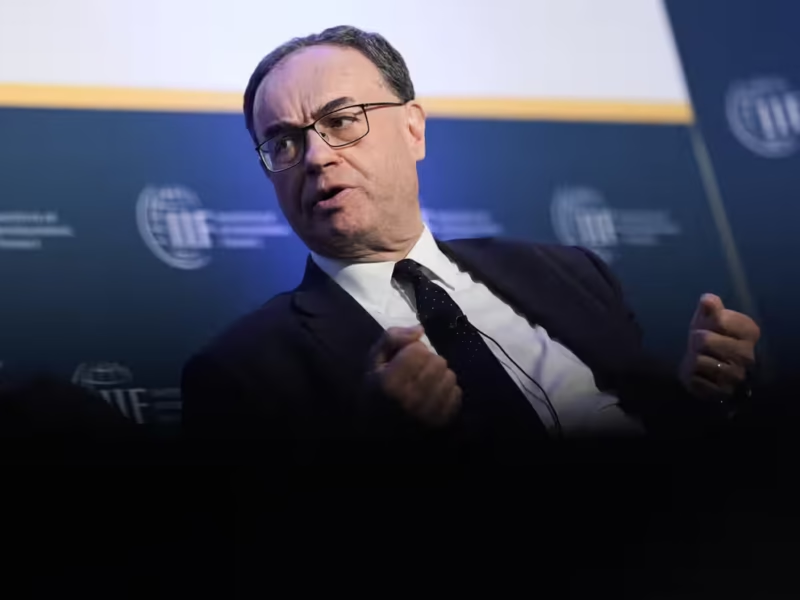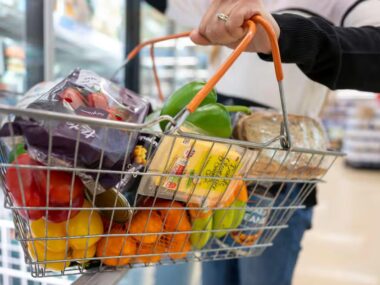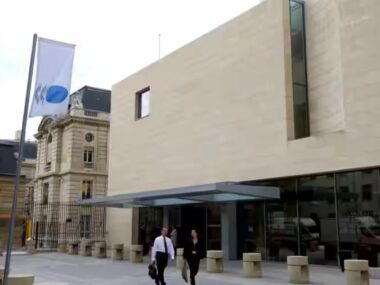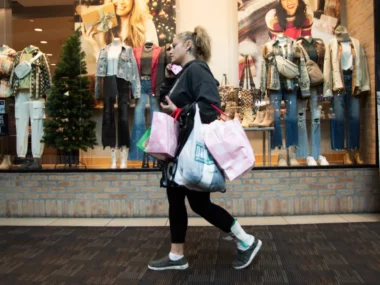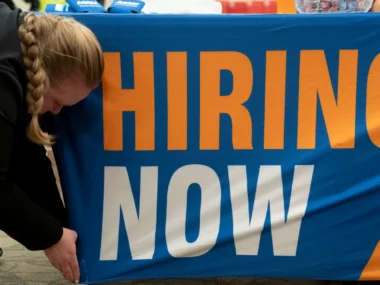Andrew Bailey says the UK isn’t nearing a recession, but a trade deal with the US would be a positive sign.
Bank of England governor Andrew Bailey has warned that Donald Trump’s trade policies could trigger a “growth shock” for the UK economy.
Speaking during the International Monetary Fund (IMF) meetings in Washington, Bailey noted that while the UK isn’t currently near a recession, there is significant concern about the potential impact on growth. His comments follow the IMF’s decision to lower its 2025 growth forecast for the UK from 1.6% to 1.1%, a downgrade that came after Trump’s tariffs were announced.
Since Labour’s general election win last July, the UK economy has struggled to regain momentum, with national output nearly stagnating in the latter half of last year amid weak consumer confidence. The IMF’s downgrade mirrors similarly pessimistic revisions from both the Bank of England and the Office for Budget Responsibility. However, recent data showed stronger-than-expected growth in February.
Despite Labour prioritizing economic growth, analysts caution that Trump’s unpredictable trade wars could dampen global economic performance, including Britain’s recovery.
Chancellor Rachel Reeves is set to discuss the possibility of a US-UK trade deal with US Treasury Secretary Scott Bessent this week. Reeves stated on Wednesday that the UK wouldn’t “rush” into an agreement, though Britain is seeking relief from a 25% tariff on UK car exports to the US—a measure that UK manufacturers warn could result in immediate job losses if not addressed.
It remains uncertain whether Washington will consider exemptions to the 10% base tariff currently applied to all nations, including the UK. Reeves indicated she might be open to reducing tariffs on certain US imports to help secure a deal but maintained that food standards and regulatory protections would not be compromised.
The UK has already made concessions, including reducing its £1bn digital services tax, which primarily affects US tech companies.
In an interview with CNBC, Bailey said he would be “very encouraged” if a trade deal were reached but emphasized that the UK, as an open economy, would still feel the effects of slowing global growth. He noted that the Bank’s policymakers would need to weigh growth risks against expectations of rising inflation, highlighting trade as a new challenge in the economic outlook.
Speaking at an IMF panel, Reeves acknowledged concerns about persistent trade deficits and recognized Trump’s mandate for change. She pointed out that both the UK and the US have experienced industries being “hollowed out,” stressing the importance of where and how goods are produced.
However, Reeves described tariffs as “blunt instruments” for addressing trade imbalances and instead called for constructive dialogue. She also confirmed that the UK has no plans to retaliate against US tariffs, stating that escalating trade tensions would benefit no one and that the government is approaching discussions with “cool heads” and a pragmatic outlook.
IMF managing director Kristalina Georgieva, who appeared alongside Reeves, praised the UK’s efforts to boost growth, commending Reeves for tackling difficult issues such as spending prioritization, regulatory reform, and economic revitalization.

